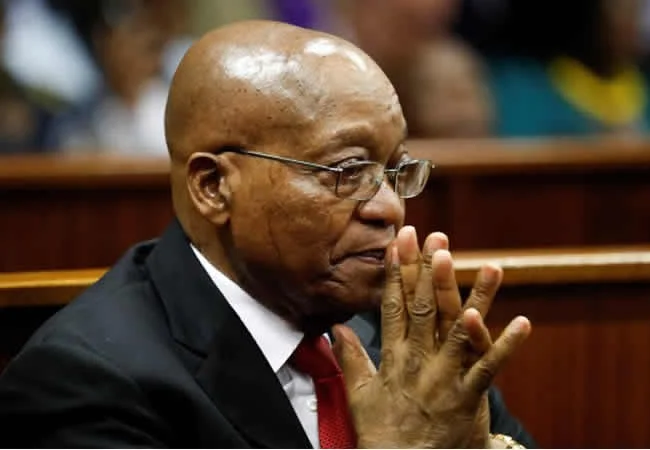On February 1, 2021, former South African President Jacob Zuma, aged 78, announced he would not comply with a Constitutional Court order to appear before the Zondo Commission, a judicial panel investigating corruption during his 2009–2018 presidency.
In a defiant statement, Zuma accused the commission, chaired by Deputy Chief Justice Raymond Zondo, of bias and demanded Zondo’s recusal, a request the chair rejected for lack of evidence.
Zuma declared, “The commission can expect no further cooperation from me,” claiming the legal process was politicized and akin to apartheid-era targeting of individuals.
Constitutional Court Ruling
On January 28, 2021, South Africa’s Constitutional Court ruled that Zuma had no right to remain silent before the commission, ordering his testimony and dismissing his claims of unfair treatment. Zuma argued the ruling left him “completely defenceless” and accused the court of politicizing justice, comparing it to apartheid tactics.
He stated he was unafraid of arrest or incarceration, citing his anti-apartheid credentials, but alleged his children and associates faced harassment, including closed bank accounts.
Background of the Zondo Commission
Established in 2018 by Zuma himself just before his forced resignation amid graft scandals, the Zondo Commission probes widespread looting of state resources during his tenure, particularly involving the Gupta family, who allegedly secured lucrative contracts and influenced cabinet appointments.
Zuma testified once in July 2019 but walked out days later, citing health issues or conflicts with another corruption case tied to a 1990s arms deal, set to resume in February 2021. His repeated refusals to appear prompted the commission to seek the court’s intervention.
Political and Legal Implications
Zuma’s defiance escalates tensions with South Africa’s judiciary, risking contempt of court charges, which could lead to arrest or fines. The Constitutional Court’s ruling sets a precedent for compelling testimony in anti-graft probes, reinforcing accountability for high-profile figures.
However, Zuma’s claims of victimization resonate with his supporters, who view the commission as a political tool, potentially fueling unrest in a country grappling with economic inequality and political polarization.
Broader Context
The Zondo Commission, formally the Judicial Commission of Inquiry into Allegations of State Capture, has uncovered evidence of systemic corruption, implicating Zuma and allies in state capture by the Guptas. Zuma’s ousting in 2018 followed public outrage and pressure from the African National Congress (ANC).
His defiance reflects ongoing divisions within the ANC and challenges for President Cyril Ramaphosa’s anti-corruption agenda, as Zuma retains significant grassroots support in regions like KwaZulu-Natal.






